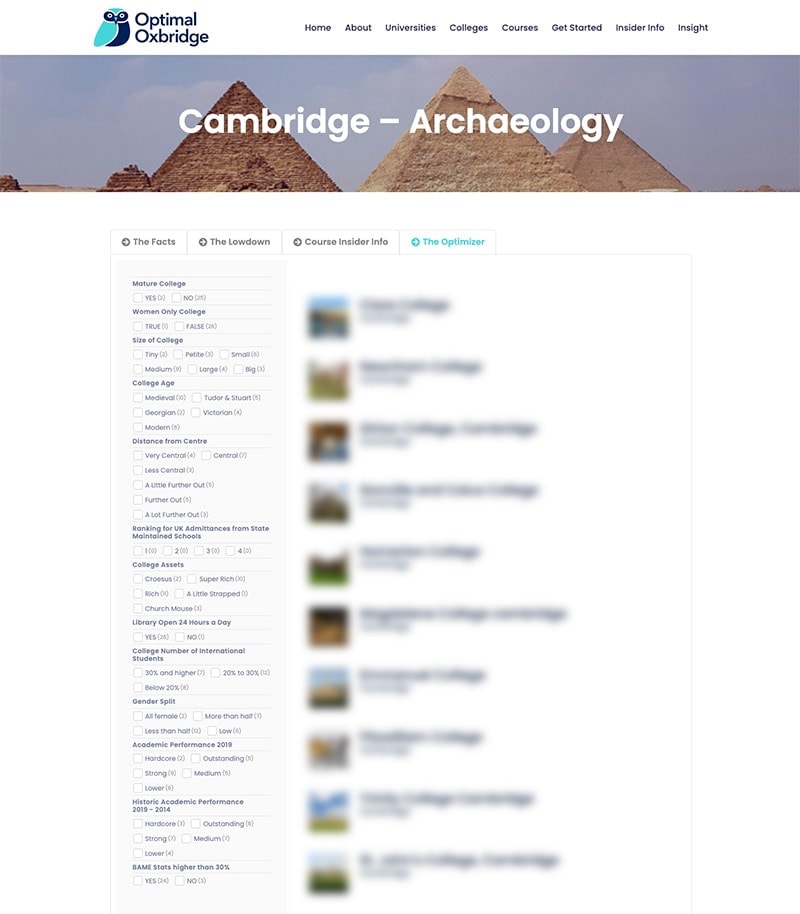Subscribe for full access to insider info and the optimizer.
Unlock access to the Optimizer and Insider Info
Let our optimizer help you find your college match faster. We’ll screen out the bad fits so that you can review the schools you’ll like best. Who knows? You might find a college you never knew existed.
The Facts
UCAS Code:
TT46
Standard Requirements:
A levels| A*AA / A*A*A ( sometimes Churchill requires A*A*A). If students combine with a European language, an A Level in that language is required.
IB | 40-42, 776 in HL
For other qualifications, check the Cambridge University website.
Required Subjects:
A European language if being pursued later.
Advisable Subjects:
None stated by the university.
None stated by the university.
Not usually required
45 (35% offered, 35% accepted)

The Lowdown
The main selling point is the flexibility of the AMES course – although Chinese and Japanese must be studied in isolation, Arabic, Hebrew, and Persian may be combined. Students have the opportunity to take a European language, too, though this requires an A-Level (or equivalent) grade in said subject. You do not need an A-Level (or equivalent) in Asian or Middle Eastern languages in order to take this course.
The course is a small/mid-sized one, with an average of 45 offers made in 2021. AMES also has one of the highest offer rates at Cambridge, with over 50% of 2020 applicants receiving an offer and 35% of 2021 applicants. Language studies are at the centre of the course, with culture studies on the periphery Teaching is delivered through a mixture of lectures, supervisions, and language classes.
The first year is mostly dedicated to getting to grips with your chosen language. You will take written and spoken language classes, as well as papers on the area of the language you are studying.
This continues in second year, with additional papers relating to the historical and literary culture of that language. These topics rotate each year, but there are multiple available for each language. If you study Chinese, you can examine Chinese dynasties, philosophy, media, and globalisation; Japanese offers the opportunity to explore history, society, and politics; and Arabic, Hebrew and Persian modules include literature, civilisation, anthropology and religion.
The third year of this course is spent abroad, usually either studying, working, or volunteering. This gives you the chance to take your language skills to the next level, as well as valuable first-hand experience of living as part of another culture.
In your fourth and final year, you write a dissertation, as well as taking four modules; at least one of these must be language-based, but most are extensions of the cultural topics explored in second year. Studying such challenging languages as these look fantastic on a CV, and many students choose to use their degree directly in future employment. Potential career paths may range from the Foreign Office to teaching, to finance, to marketing.
Unlock Insider Info
Get insider intel about how to increase your chances of being offered a place, plus access interviews tips and special questions.
The Optimizer
Unlock access to the optimizer
Let our optimizer help you find your college match faster. We’ll screen out the bad fits so that you can review the schools you’ll like best. Who knows? You might find a college you never knew existed.

